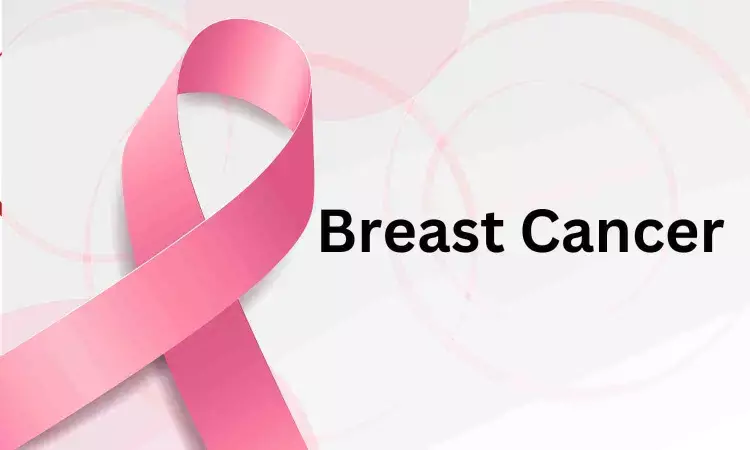- Home
- Medical news & Guidelines
- Anesthesiology
- Cardiology and CTVS
- Critical Care
- Dentistry
- Dermatology
- Diabetes and Endocrinology
- ENT
- Gastroenterology
- Medicine
- Nephrology
- Neurology
- Obstretics-Gynaecology
- Oncology
- Ophthalmology
- Orthopaedics
- Pediatrics-Neonatology
- Psychiatry
- Pulmonology
- Radiology
- Surgery
- Urology
- Laboratory Medicine
- Diet
- Nursing
- Paramedical
- Physiotherapy
- Health news
- Fact Check
- Bone Health Fact Check
- Brain Health Fact Check
- Cancer Related Fact Check
- Child Care Fact Check
- Dental and oral health fact check
- Diabetes and metabolic health fact check
- Diet and Nutrition Fact Check
- Eye and ENT Care Fact Check
- Fitness fact check
- Gut health fact check
- Heart health fact check
- Kidney health fact check
- Medical education fact check
- Men's health fact check
- Respiratory fact check
- Skin and hair care fact check
- Vaccine and Immunization fact check
- Women's health fact check
- AYUSH
- State News
- Andaman and Nicobar Islands
- Andhra Pradesh
- Arunachal Pradesh
- Assam
- Bihar
- Chandigarh
- Chattisgarh
- Dadra and Nagar Haveli
- Daman and Diu
- Delhi
- Goa
- Gujarat
- Haryana
- Himachal Pradesh
- Jammu & Kashmir
- Jharkhand
- Karnataka
- Kerala
- Ladakh
- Lakshadweep
- Madhya Pradesh
- Maharashtra
- Manipur
- Meghalaya
- Mizoram
- Nagaland
- Odisha
- Puducherry
- Punjab
- Rajasthan
- Sikkim
- Tamil Nadu
- Telangana
- Tripura
- Uttar Pradesh
- Uttrakhand
- West Bengal
- Medical Education
- Industry
TyG-Related Indices Identified as Potential Biomarkers for Higher Breast Cancer Risk: Study

Researchers have reported new evidence suggesting that triglyceride glucose related indices may serve as meaningful biomarkers for predicting the likelihood of breast cancer in women. The authors explain that these indices, which reflect insulin resistance and metabolic health, showed consistent and strong associations with future breast cancer development across the study population. What this really means is that simple metabolic markers, which are already widely used in cardiometabolic research, could also help identify women who might be at higher risk long before symptoms appear.
The study team notes that this connection remained clear even after accounting for several traditional risk factors, pointing toward the potential clinical value of incorporating TyG-related measures into routine risk assessment.
Here is the thing — the findings add to a growing body of research linking metabolic dysfunction with cancer progression, especially in hormonally influenced cancers such as breast cancer. Insulin resistance, chronic inflammation, and altered lipid metabolism have long been recognized as contributors to tumor growth. By focusing on TyG-related indices, the authors provide an accessible tool that clinicians and researchers can evaluate without needing complex or costly testing.
The study also highlights how metabolic changes may begin years before a breast cancer diagnosis, offering a longer window for targeted prevention strategies. The researchers emphasize that these associations were observed across a population-based cohort, reinforcing the relevance of metabolic markers in real-world settings.
What this study really brings forward is the potential to integrate TyG-related indices into preventive planning for women who might not otherwise be flagged as high risk. The authors suggest that identifying at-risk individuals through these metabolic indicators could help guide lifestyle counseling, early surveillance, or additional risk-stratification approaches. While the researchers call for further investigation to better understand causality and refine screening thresholds, they conclude that these findings open new paths for risk assessment grounded in everyday clinical data. Their work encourages continued exploration of metabolic health as a central piece in cancer prevention efforts.
Reference : Xie, Q., Zhen, Y., Fan, Z., et al. (2025). Triglyceride glucose related indices predict incident breast cancer risk in a population based cohort study. Discovery Oncology. https://doi.org/10.1007/s12672-025-04031-8
Dr. Shravani Dali has completed her BDS from Pravara institute of medical sciences, loni. Following which she extensively worked in the healthcare sector for 2+ years. She has been actively involved in writing blogs in field of health and wellness. Currently she is pursuing her Masters of public health-health administration from Tata institute of social sciences. She can be contacted at editorial@medicaldialogues.in.
Dr Kamal Kant Kohli-MBBS, DTCD- a chest specialist with more than 30 years of practice and a flair for writing clinical articles, Dr Kamal Kant Kohli joined Medical Dialogues as a Chief Editor of Medical News. Besides writing articles, as an editor, he proofreads and verifies all the medical content published on Medical Dialogues including those coming from journals, studies,medical conferences,guidelines etc. Email: drkohli@medicaldialogues.in. Contact no. 011-43720751


